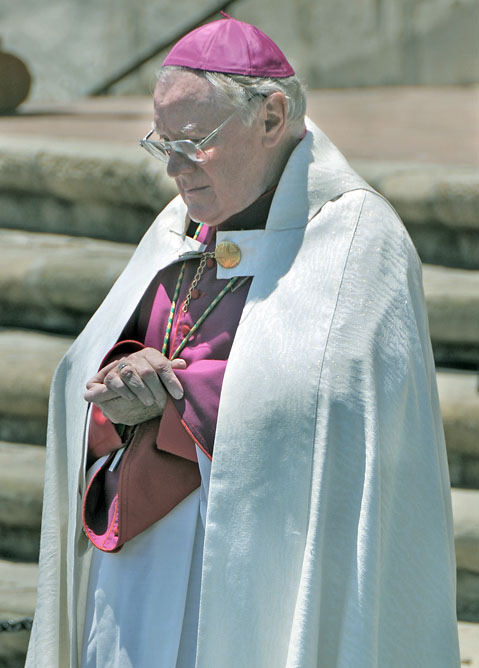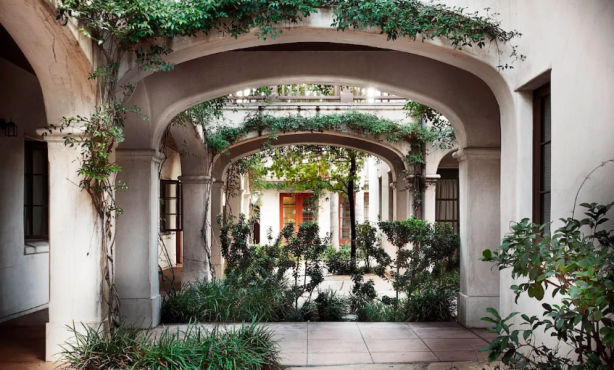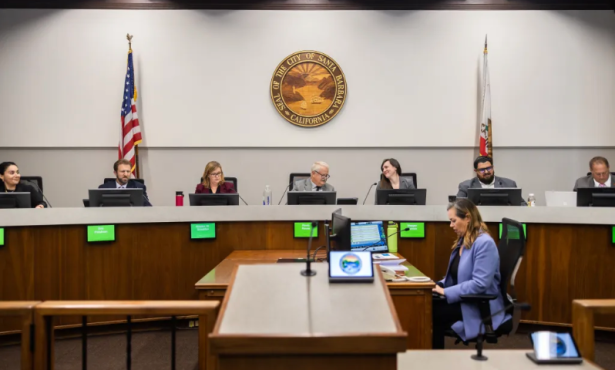‘Thwarting’ an Investigation
Santa Barbara Bishop Accused of Sex Abuse Cover-Up
Santa Barbara’s Auxiliary Bishop Thomas J. Curry has been accused of “thwarting” potential sex abuse investigations by responsible law enforcement agencies concerning at least three pedophile priests during the 1980s when Curry served as the archdiocese’s chief advisor to archbishop — and later cardinal — Roger Mahony on sex abuse cases.
Attorney Tony De Marco submitted just-released church personnel records demonstrating how concerned Curry and Mahony were that sexual-offender priests might come to the attention of law enforcement investigators. De Marco submitted these documents as part of a lawsuit he filed on behalf of a man who claims he’d been abused by a priest, Nicholas Aguilar Rivera. Rivera remains at large, and De Marco is demanding the opportunity to depose Curry and Mahony to demonstrate the extent to which the archdiocese was “thwarting law enforcement investigations.”
In 1986, Curry wrote a memo to Mahony about Michael Baker, a priest who’d admitted to molesting boys that year. Curry cautioned against allowing Baker to see a California therapist. “I see a problem here, in that if he were to mention his problem with child abuse it would put the therapist in a position of having to report him.” Curry then added, “I think we have to be very careful about whom he goes to see and what kind of information is released to the program. Given the fact that he cannot mention his past problem, the necessity to be so circumspect might defeat the purpose of his going to a therapist.”
Curry suggested reassigning Baker to any number of functions where he would come in minimal contact with juveniles, including the Matrimonial Tribunal, “counseling those whose marriages have broken up.” At the bottom of this typewritten memo, Mahony had responded in handwriting, “Sounds good — please proceed!!”

In a news story broken this week by the Los Angeles Times, Curry opined it would be preferable if a priest who’d confessed to church authorities that he’d repeatedly molested a 12-year-old boy went to see a therapist who was also an attorney. That way, Curry suggested, anything the priest told the therapist would be legally privileged information. Concerning another pedophile priest, Curry argued he not be allowed back in Los Angeles, because he might be seen by one of his nearly 20 victims.
In response to these allegations, Mahony issued a lengthy statement apologizing for not doing more to protect the children of his archdiocese. Curry has thus far declined to comment. Attorney Michael Hennigan, representing the archdiocese stated, “There never was any cover-up.” If there had been, he added, it would have been exposed in one of the three grand jury investigations that have taken place.
Hennigan said the church was not obligated to report allegations of clerical sexual abuse until 1997; prior to that, such information was regarded as privileged and confidential. The idea was to treat pedophile priests therapeutically, he said, and no priest could absorb the benefits of therapy if he worried his therapist was obligated to inform on him. “Families were encouraged to report to police,” he said, though some of the pedophiles listed by De Marco preyed upon the children of immigrants, knowing they wouldn’t go to authorities.
The personnel files themselves have been the subject of intense negotiation, mediation, and litigation between the archdiocese and attorneys representing abuse victims and their families. As part of a global settlement, the archdiocese had agreed to make public certain files and documents relating to the sex abuse scandal. Some accused priests sued, arguing such a settlement violated their privacy. The archdiocese argued in court for a limited disclosure of information, and a mediator assigned to the case agreed.
That result was challenged not just by the sex abuse victims, but by the Los Angeles Times, insisting that the names of church authorities — like Mahony and Curry — be un-redacted. Late last year a judge agreed, voided the mediator’s ruling, and ordered the documents released. Hennigan insisted that the archdiocese never fought the release of information so much as it fought for a limited disclosure. Critics of the church have seized upon the recently released documents to argue church authorities can’t be trusted to police themselves.
Hennigan insists that the media has focused almost entirely on past abuse cases, decades old, and has ignored reforms enacted since. “We have hired retired FBI to investigate any claims, even anonymous ones,” he stated. Dozens of cases, he said, have been forwarded to legal authorities for further action or investigation. Tim Hale, a Santa Barbara attorney specializing in sexual abuse litigation, countered that the archdiocese should relay all complaints to the police, not to its own investigators.
In the meantime, a judge will determine whether De Marco can depose Curry and Mahony after a hearing scheduled next month.



